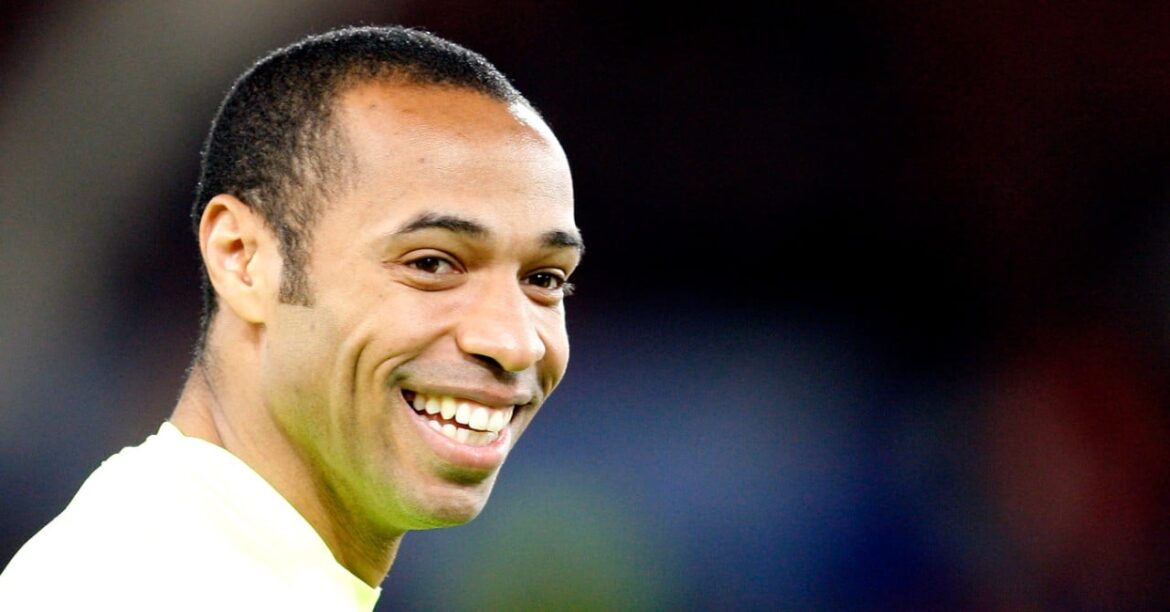[ad_1]
Thierry Henry’s remarkable tenure at Arsenal during his time in the Premier League positioned him among the greatest players of his era. Despite delivering performances worthy of the prestigious Ballon d’Or, particularly in 2003 and 2004, he ultimately missed out on this coveted accolade. Arsène Wenger later weighed in with a poignant reflection on this near-miss.
Henry is one of many talented French footballers who came tantalizingly close to claiming the Ballon d’Or. Following Franck Ribéry’s third-place finish behind Cristiano Ronaldo and Lionel Messi in 2013, and Antoine Griezmann’s triumph over Luka Modrić in 2018, Henry’s experience echoes their struggles. The prolific striker dominated the Premier League scoring charts in the early 2000s but was overshadowed by Serie A winners: Pavel Nedved earned top honors in 2003, followed by Andriy Shevchenko in 2004 and Fabio Cannavaro taking it home six years later.
The Quest for Recognition
Henry was acutely aware that he stood on the brink of joining an elite club of French Ballon d’Or winners that includes legends such as Raymond Kopa, Michel Platini, Jean-Pierre Papin, Zinédine Zidane, and Karim Benzema. Wenger remarked back in 2012 via Arsenal.com: “It indeed pained him. He understood he had earned it through sheer merit—I absolutely believe he did deserve it.” Wenger further noted an interesting perspective: “At that time, with France Football behind it as well as European journalists voting for these awards perhaps there was an implicit bias against French players.”
A Controversial Oversight
The suggestion put forth by Arsène Wenger regarding undue scrutiny from France Football incited considerable discussion ten years ago amidst speculation surrounding award selection processes. However contentious these theories may seem, it’s essential to recognize that since its inception in 1959—with Stanley Matthews being its first recipient—the award has been judged by a panel predominantly consisting of foreign journalists rather than local biases influencing outcomes.
In terms of merit alone during the storied season of 2002-03 when Henry posted an impressive tally—recording an astonishing thirty-two combined goals (24 goals) alongside assists (20 assists)—his achievements marked a standout season even though Arsenal fell short without lifting silverware. They were eclipsed by Juventus’ Pavel Nedved who garnered more votes largely owing to his Champions League-level performances against Barcelona and Real Madrid at that time period. Furthermore, even amid Arsenal’s “Invincibles” campaign where Henry scored thirty times; AC Milan’s Andriy Shevchenko secured accolades due partly to having led Serie A—widely recognized then as Europe’s premier league—with his own tally reaching twenty-four goals.
Summary Overview
- Arsenal forward Thierry Henry came remarkably close to winning multiple Ballon d’Or titles during the early phase of his career but faced stiff competition primarily from Serie A maestros like Pavel Nedved (2003) and Andriy Shevchenko (2004).
- In comments made available in May 2012 concerning awards discussions surrounding player evaluations—Wenger posited possible bias existed within France Football towards its native athletes despite voting transparency held across European journalist panels.
- The season details exhibit exemplary feats such as Henry achieving a staggering record encapsulating both goals scored (24) coupled with assists delivered amidst fierce competition proving luck played no small part regarding these losses for coveted accolades.|
[ad_1]

